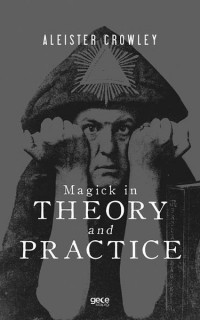
Magick İn Theory And Practıce
| ISBN | 9786257445993 |
| Yayınevi | Gece Kitaplığı |
| Yazarlar | Aleister Crowley (author) |
| Kitap Tanıtımı | “...The magician should imagine that he is hearing this voice, and at the same time that he is echoing it, that it is true also of himself. This thought should so exalt him that he is able at its conclusion to utter the sublime words which open the third part: “Behold! he is in me, and I am in him.” At this moment, he loses consciousness of his mortal being; he is that mental image which he previously but saw. This consciousness is only complete as he goes on: “Mine is the radiance wherein Ptah floateth over his firmament. I travel upon high. I tread upon the firmament of Nu.I raise a flashing flame with the lightnings of mine eye: ever rushing on in the splendour of the daily glorified Ra — giving my life to the treaders of Earth!” This thought gives the relation of God and Man from the divine point of view. The magician is only recalled to himself at the conclusion of the {18} third part; in which occur, almost as if by accident, the words: “Therefore do all things obey my word.” Yet in the fourth part, which begins: “Therefore do thou come forth unto me”, it is not really the magician who is addressing the God; it is the God who hears the far-off utterance of the magician. If this invocation has been correctly performed, the words of the fourth part will sound distant and strange. It is surprising that a dummy (so the magus now appears to Himself) should be able to speak!...” (Tanıtım Bülteninden) ) |
Kütüphaneniz